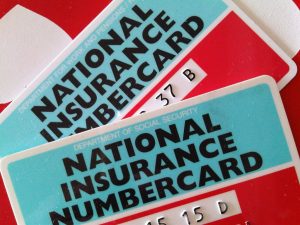Taxpayers in the UK are entitled to personal allowance when they qualify.
The Personal Allowance is the amount of income each individual is entitled to receive free of tax each year.
The basic Personal Allowance for the tax year 2023/24 is £12,570, this means that you are allowed to earn £12,570 tax-free in this tax year.
The way this is applied is that this amount is divided by 12 calendar months within the tax year (6th April to 5th April) and it is used to reduce the total tax due.
Each individual is entitled to one personal allowance each year regardless of the number of employers they have.
The only exceptions are taxpayers that earn over £100,000 in a tax year, in such cases, the personal allowance goes down by £1 for every £2 that goes over the adjusted net income.
Individuals who earn over £125,140 and above do not have any personal allowance during the tax year. Your allowance (tax-free income) can be increased or decreased
depending on your situation.

Tax codes for taxpayers in the UK
The tax code is a set of numbers and or letters that the employer or pension providers use to determine how much tax–free income you are entitled to each year.
This set of numbers is derived from the allowance that you are entitled to when you work in the UK.
The most common tax code for this year is 1257L (12570) which means that your tax code is correct.
If this is more, e.g. 1350L (13500), it means that you are paying less tax because your allowance has been increased.
If your tax code is 1057L (10570) this means that you don’t have the full free tax code which may be due to various reason
If you have OT/BR/DO, your employer has used this code because you have a second job and the tax code has not been applied.
What happens when taxpayers in the UK receive taxable employment benefits from their employer?
Employment benefits are things that your employer provides to you for free as a result of your employment.
These employment benefits are provided by employers to attract employees into a particular position.
The most common ones are car benefits, medical benefits, accommodation benefits private insurance etc.
Your employers have to report these benefits to HMRC and the cost will be used to reduce your tax code.

For example tax calculations for taxpayers in the UK.
Engr. Chris was provided with a car with a taxable benefit of £8000
He also receives medical insurance with a taxable benefit of £1020.
Engr. Chris’ new tax code is shown below
Personal allowance £12,570
Less Car benefit £8000
Less Medical benefit £1020
New personal allowance of £ 3,550
Therefore, Engr. Chris’ new tax code is 355L
The reason is that he will be due to pay taxes on the car and medical insurance that he receives
from his employer just as the income that he receives.
Tax reliefs could reduce the tax due taxpayers in the UK
1. Marriage Allowance.
The marriage allowance lets you transfer some of your unused personal allowances to your
spouse or civil partner. You can always transfer 10% of the total personal allowance for the year
(for this year £1,260 can be transferred to you).
If you are entitled to this relief, your personal allowance is increased by 1260 and therefore you
enjoy at least a tax relief of £252.

- Blind Person’s Allowance
Blind Person’s Allowance is an extra amount of tax-free allowance – in 2023/24, it is £2,600.
If you live in England and Wales then you need to be registered blind with a Local Authority.
If you live in Scotland or Northern Ireland then you can claim Blind Person’s Allowance if you
cannot do work that requires eyesight.

3. Personal Saving Allowance.
This allowance was introduced in April 2016.
If you’re a basic-rate taxpayer, you’ll be able to
earn up to £1,000 in savings income tax-free.
If you were a higher rate taxpayer (when your net income is over £45,000 in 2017/18) would be
able to earn up to £500.
This tax relates to the saving income (interest). This simply means most basic taxpayers would
not be paying taxes on their savings income again. You don’t need to do anything to claim your
Personal Savings Allowance.
4. Effect of Charity gift aid relief on taxpayers in the UK.
If you donate money to registered Charity and charities and community amateur sports clubs
(CASCs) In the UK, you may be entitled to tax relief. You are only however entitled to this relief
if you pay tax at 40%.
The reason is that the charity that you donated to claims 20% of the amount donated through Gift
Aid. So tax relief of 20% can be claimed back by the taxpayer when the paid tax is at 40%. The
amount that you donated will be grossed up by 20% and your tax band will be extended.
E.g.: Let’s say that you donate £2,000 to a charity and you pay tax at 40%.
The amount will be calculated as 2000 x (100/80) = 2500.
The tax band will be extended by 2500 which invariably means that you pay tax at 20% rather
than 40% for an income of £2500
5. Private Personal Pension relief for taxpayers in the UK
Individuals can get relief on their contribution to private pension contributions up to 100% of
their annual income.
This relief can either be automatically applied if you are employed and the
employer would just deduct the amount paid on the pension before deducting the income tax
through payroll. The pension provider claims tax relief for you at a rate of 20% and adds it to
your pension pot. (You get relief at source in all personal and stakeholder pensions and some
workplace pensions).
It can also be relieved through your self-assessment returns if you are self-employed by adding
the details when you submit your returns.
Now, if you are a higher rate or additional tax rate payer, you have relief of 20% or 25% that can
be claimed through self-assessment or your tax code can be increased thereby paying less tax in
the year.
We hope that you have enjoyed reading the blog If you would like us to support you with your personal tax, kindly contact us
